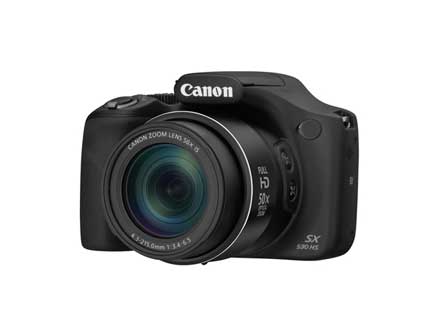Tom's Guide Verdict
The Canon PowerShot SX offers a powerful 50x zoom in a lightweight, DSLR-like body, but don't expect many frills.
Pros
- +
Powerful 50x zoom with little distortion
- +
Seamless wireless sharing options
- +
All-day battery life.
Cons
- -
Plastic body feels cheap
- -
Relatively small maximum aperture limits low-light shooting
- -
No touch screen, fixed LCD.
Why you can trust Tom's Guide
Who it's for: Bird watchers or journalists who need to get close to their subjects without scaring them; Sports fans and parents who need to zoom in on subjects in large stadiums or theaters.
Your smartphone camera might take great photos, but only as wide shots. If you want to go in for a close-up, the Canon PowerShot SX530 HS, with its 50X zoom lens, is a compelling option. With a lightweight, DSLR-like body, the SX530 HS ($430 list price) is a handy companion for your travels, nature hikes and family vacations. It also has manual controls for the more advanced photographer, and Wi-Fi and NFC capabilities for easier photo sharing.
Image Quality: Better than smartphones, especially at night
At 16 megapixels, the PowerShot SX530 HS matches the resolution of cameras on flagship smartphones like the Samsung Galaxy S6 and the LG G4. Those smartphones even offer wider apertures — f/1.9 and f/1.8, respectively — compared to the Canon's mere f/3.4 maximum, which means it can let less light in than those phone cameras can. Apertures are a challenge for high-zoom cameras: The $250 Panasonic Lumix DMC-ZS45 offers a 20x optical zoom and an f/3.3 maximum aperture, essentially the same as the Canon's.
MORE: Best Cameras for the Money
In optimal light, the SX530 HS took pictures that were slightly better than those snapped by leading smartphones. My snapshots of colorful springtime blossoms showed accurate colors; yellow, orange and purple petals were clearly delineated.
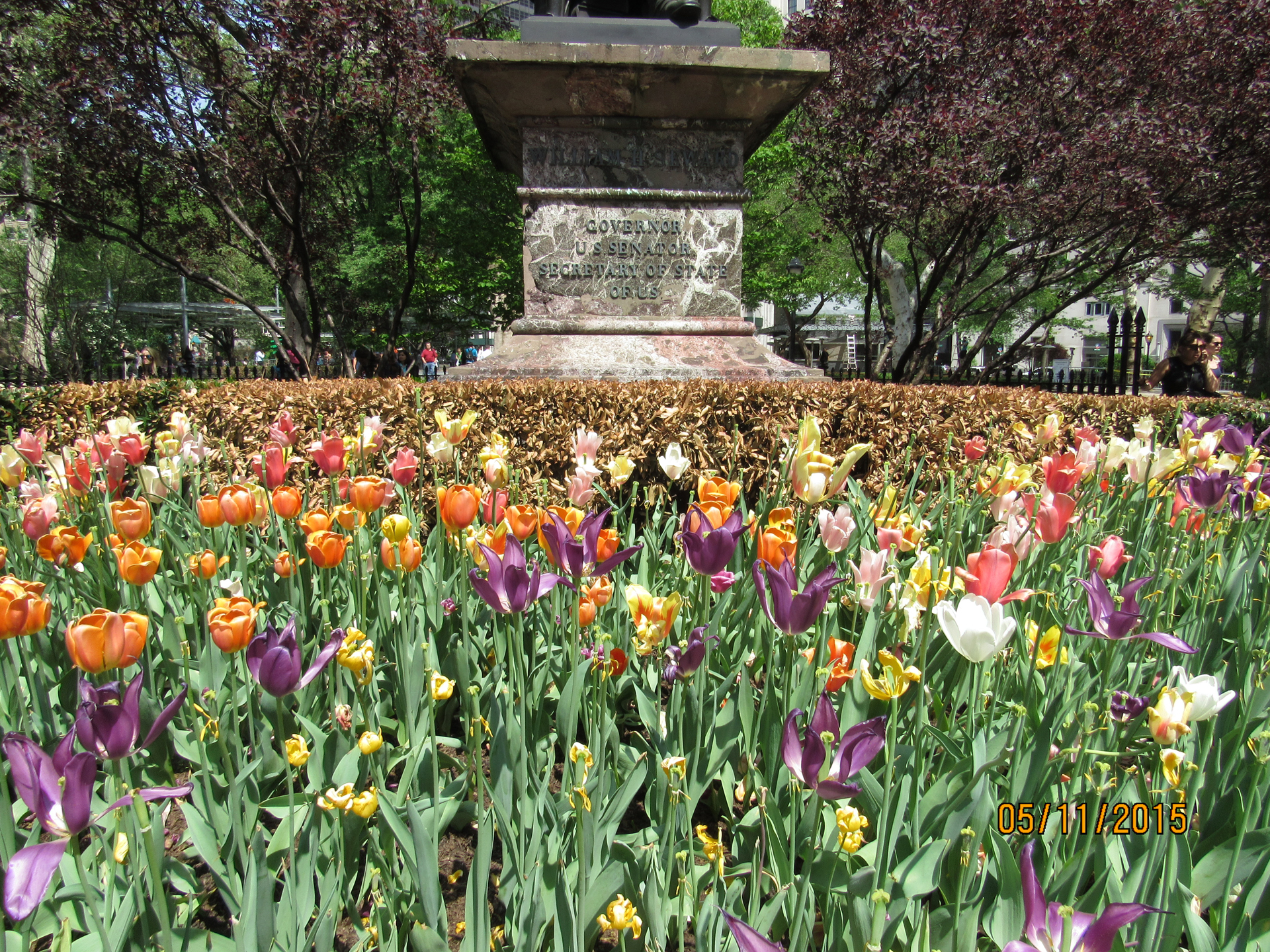
Similar pictures taken (albeit on a different day) with the Galaxy S6 and the LG G4 using each phone’s auto mode were not as defined, with the petals looking muddy when you zoomed in on them. But in other aspects, such as color, the smartphones' photos were almost on par with the $300 Canon's.

A close-up shot of one of these flowers was richly detailed, and the subtle striations and grains of dirt on the petal were tack sharp. The purple petals and green grass around it were accurately rendered. I was hoping to set a shallow depth of field (blurred background) for a more pleasant-looking picture, but the camera's limited aperture and small sensor don't allow this.

The SX530 HS captured skin tones well, accurately rendering the ruddy complexion of my colleague standing before the colorful reflection of Manhattan buildings in a store window. Individual strands of facial hair were tack sharp as well.
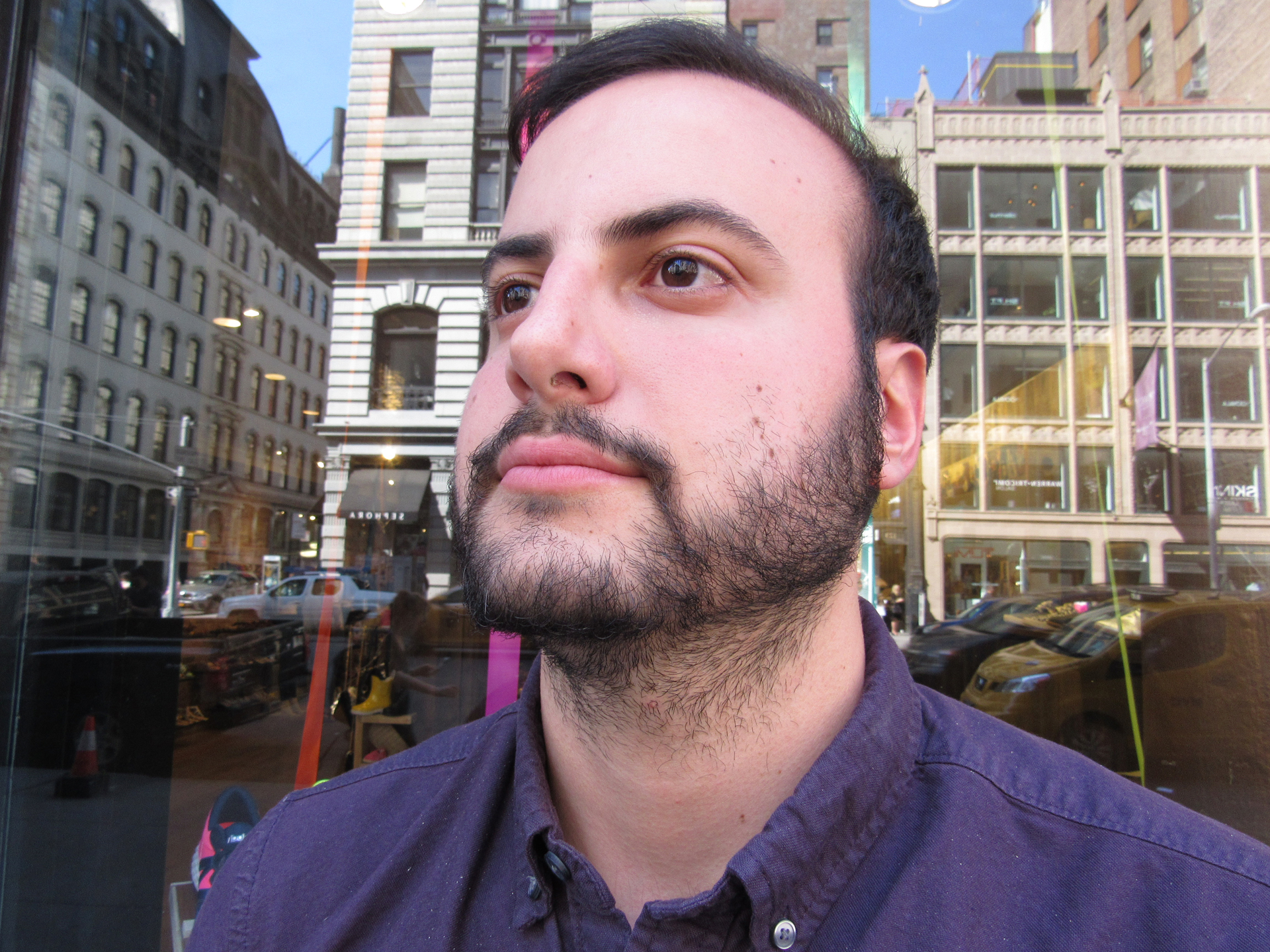
Low Light/Night Results: Attractive
In low light, the SX530 HS was capable of capturing rich detail and vivid colors, such as windows on buildings, as well as blue sky and red neon lights, in my nighttime shot of the Manhattan cityscape.
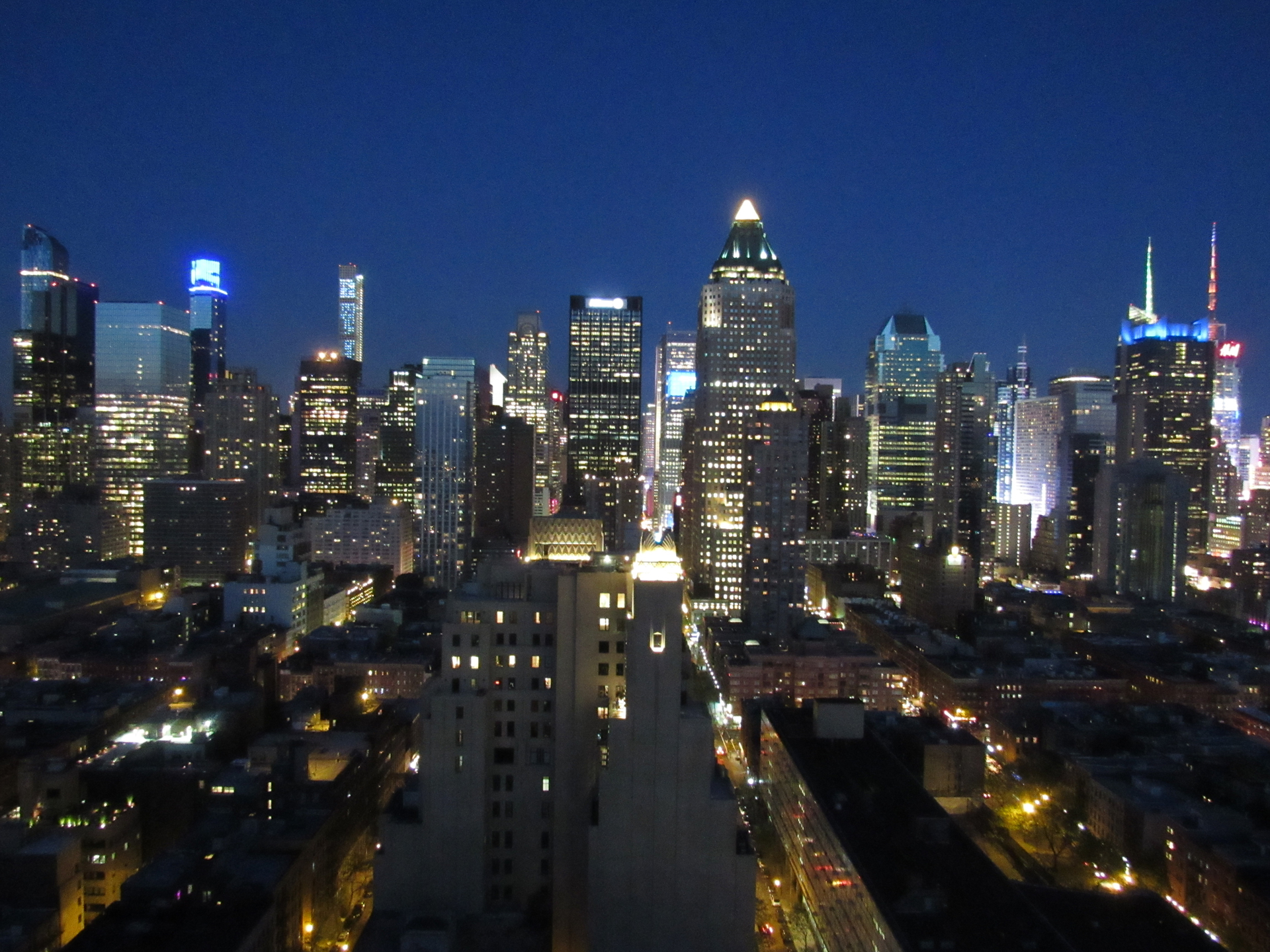
Using Aperture Priority mode, I set the aperture to f/3.4 — the widest it could go. The camera put ISO at 1600 and shutter speed at 1/8 second, which resulted in a bright, sharp and clear image. I steadied the camera by leaning it on the railing to accommodate the slow shutter speed.
When I set the SX530 to Auto, the camera picked ISO 4000, f/3.4 and a shutter speed of 1/20 second to minimize motion blur, leading to a slightly darker photo that was covered with noise (colored specks).
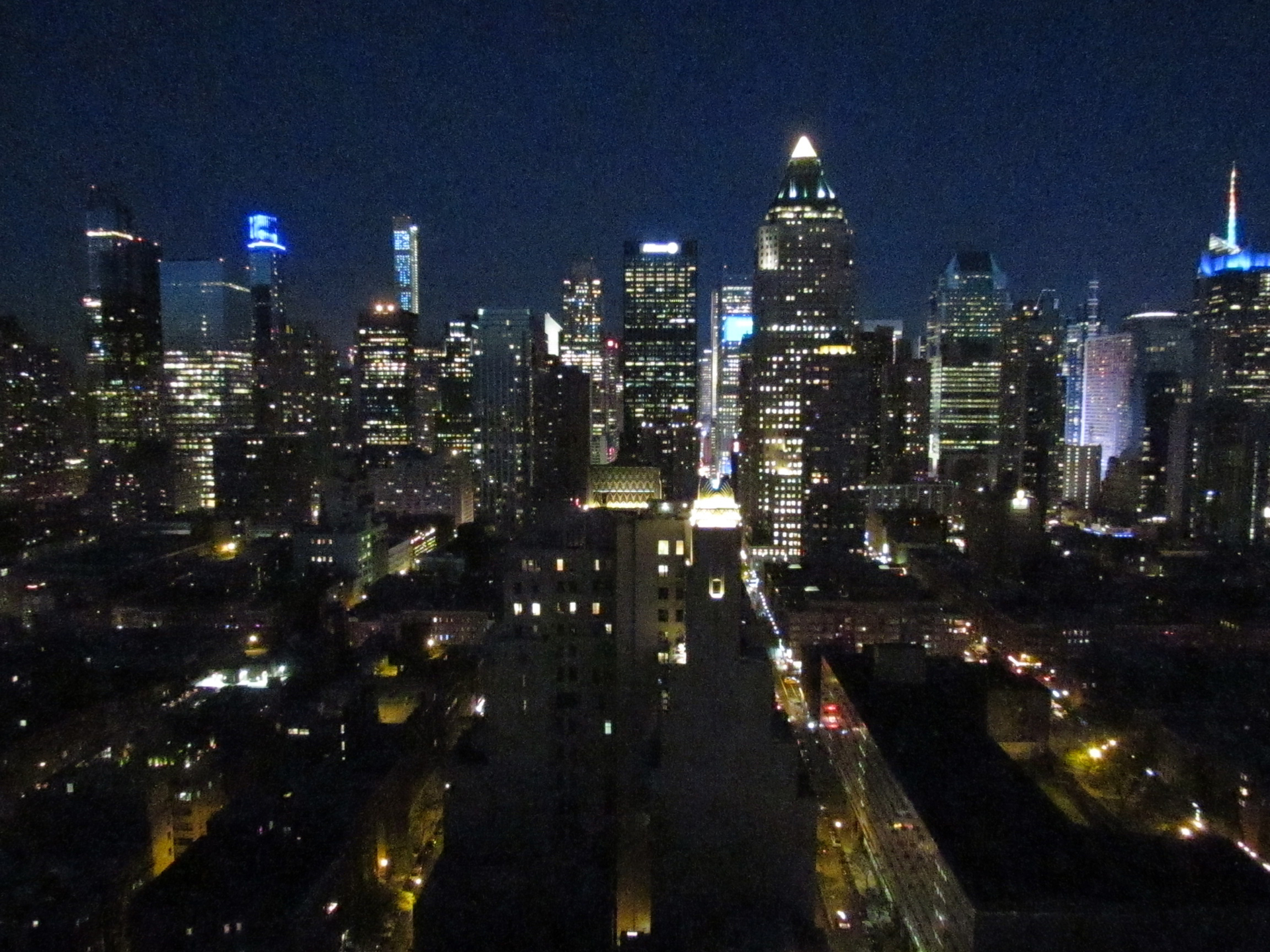
I don't recommend going beyond ISO 1600 if you want to avoid graininess in your shots. (None was visible when the images were viewed at up to about 25 percent of full size.) The level of noise reduction is not adjustable, as it is with more-sophisticated cameras such as DSLRs.
My close-up of chocolate boxes in a dark showcase was detailed enough to show the wood patterns on the shelf, and the blue text on the labels looked true.

The SX530's built-in flash did not overpower the picture, keeping my co-worker's skin tone and purple shirt accurate and not overexposing parts of his face. Details, such as items on shelves in the background, became clear as well. One small nitpick: There isn't a button to make the flash pop up; you have to lift it manually.
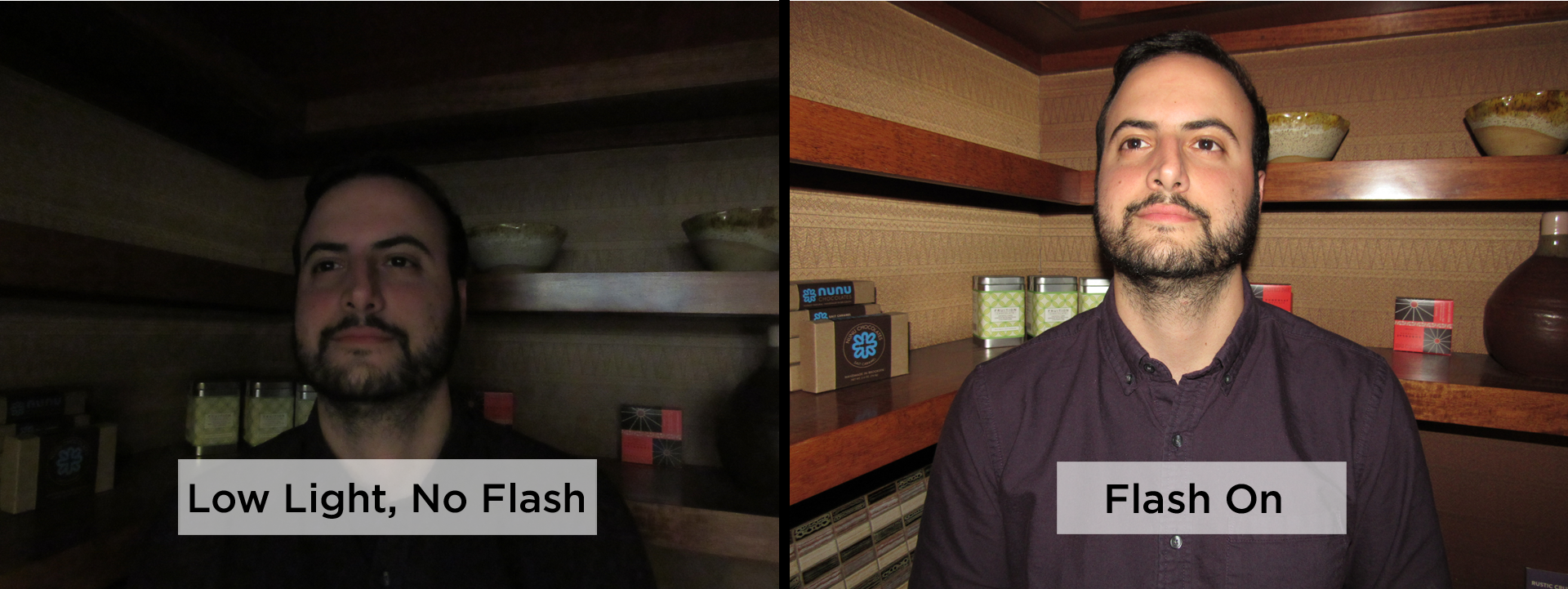
In all of the situations I shot, the SX530's auto white balance proved adept at figuring out the right color cast to use.
Zoom Performance: Up close and steady
I had a lot of fun pretending I was Bradley Cooper in "American Sniper" (with less deadly intentions), thanks to the SX530's powerful 50x (24 - 1200mm) zoom. Poised at the corner of the rooftop of our 12-story office building, I narrowed in on unsuspecting passersby waiting to cross intersections a block away.
Pictures I shot at that distance were clear, and text such as "3-hour metered parking" on a sign were tack sharp. At maximum zoom, though, I had to struggle to stay still to get images that were not blurry. It was understandably more difficult than using a camera with a lesser zoom, such as the 20x Panasonic Lumix ZS45.
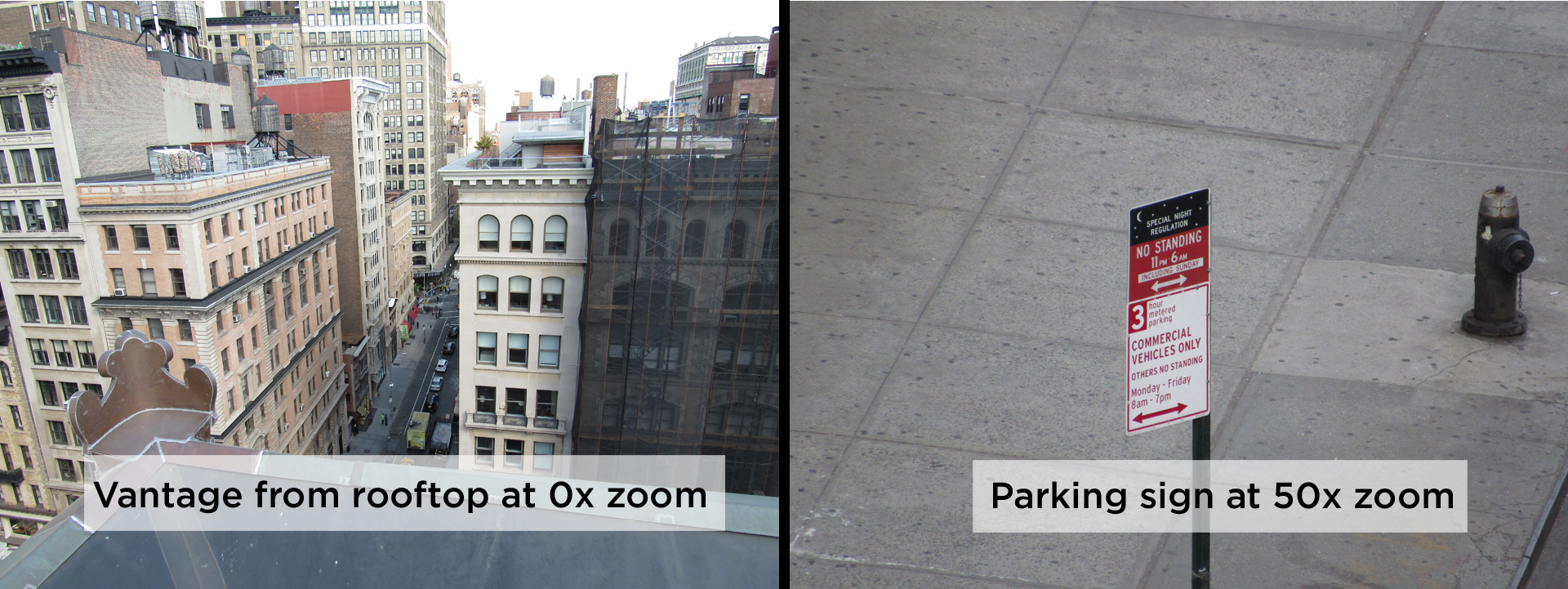
With the camera's Intelligent IS (image stabilization) technology, my shaky hands didn't get in the way of snapping sharp pictures without a tripod. Canon packed a Framing Assist Lock feature to help reduce camera shake on the telephoto end. You hold down the lower button on the side of the lens to activate the feature, and then depress the shutter button to start focusing on your subject. The camera will reduce motion to prevent slight drifting and help keep your subject in the center of the frame. Although this did result in clearer pictures, it didn't always work, and I still shot some blurry pictures with the feature on.

With the 50x optical zoom, I was able to get close to passersby, but with the additional 50x digital zoom (in-camera cropping), I got in their faces — literally. From the same vantage point, I surreptitiously snapped several shots of people walking across the street. With the digital zoom, I managed to get close enough to clearly see a man taking a sideways glance at a woman next to him. Digital zoom reduced the resulting image's file size to about 3.7MB, as opposed to the approximate 5.5MB without digital zoom, so there might be degradation in the image quality. Still, the pictures turned out sharp enough for posting online.
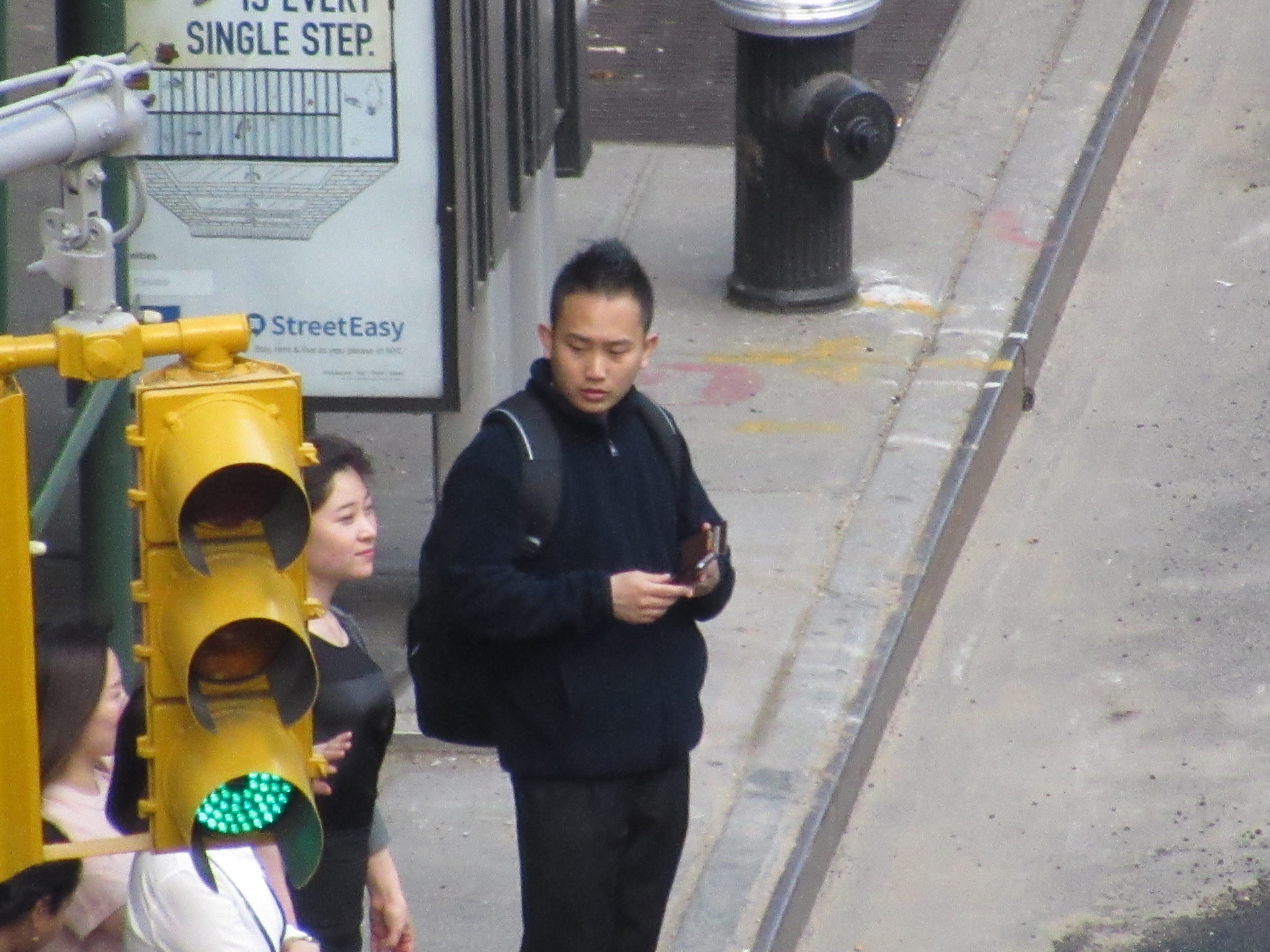
The zoom worked equally well at night, letting me fill my screen with the Times Square Barclays building's logo from half a mile away.

Video Quality
Capable of recording 1080p video at up to 30 frames per second, the SX530 lags behind some competitors that can go up to a smoother 60 fps. The frame rate is the same as the Panasonic ZS45's, though.
My 1080p footage of dogs running around in Madison Square Park was colorful and smooth, with no discernible stutter as my furry subjects moved across the frame. Passing vehicles in the background were similarly smooth. The video did stutter a little as I panned across a scene to follow a puppy scrambling toward a fellow canine.
The SX530 kept all of my adorable subjects in focus as they pranced around.
At night, however, my clip of traffic on Manhattan streets was covered with pixel noise and was so dark that most buildings were completely lost in shadows. Individual cars and road markings were clear, though.
Autofocus and Speed
Capable of firing up to 10 fps in burst mode (1.6 fps with autofocus for each shot), the SX530 is fast enough for most shooters. It offers face detection, TTL (through-the-lens) nine-point autofocus and manual focus. During my testing, the camera was quick to find and lock on to subjects, typically doing so within a fraction of a second.
MORE: Best DSLRs
The manual focus uses the up and down buttons next to the LCD to set how far away (in centimeters) you want your focal point to be. You can set it to as close as 1 cm (0.39 inches) away or as far as 5 meters (16.4 feet) away. (Beyond that, focus is considered to be at "infinity," with everything appearing sharp.) I found this system imprecise and cumbersome, because each press of the up or down button resulted in a different amount of distance moved.
Face detection was effective in helping to keep subjects in focus whether I zoomed in or out. Canon's Framing Assist Seek feature identifies the face of a person; lets you choose whether to keep his or her face, upper body or whole body in the scene; and adjusts the zoom while you move to keep that person in the frame (for example, it zooms out if you pan to the side).
Design and Handling
It looks like a miniature DSLR, thanks to its protruding lens and grip, but pick up the PowerShot SX530 HS, and you'll be surprised by how light it is. The 15.6-ounce camera's light, plastic body doesn't feel as sturdy as it looks, but at least it won't burden your shoulders.
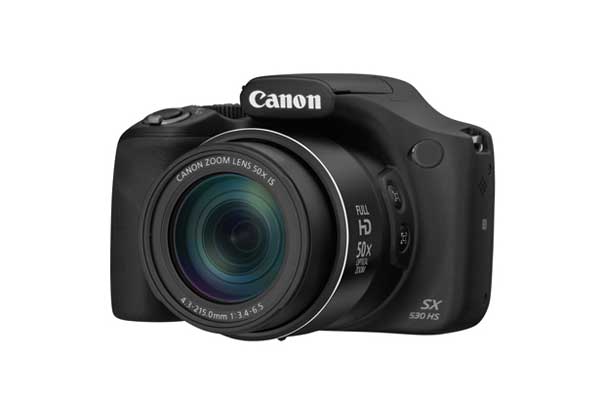
The comfortable grip on the right side makes the camera easy to hold (for right-handers). Most of the camera's controls — which consist of two dials, 13 buttons and a zoom toggle — are on the right side, within easy reach.
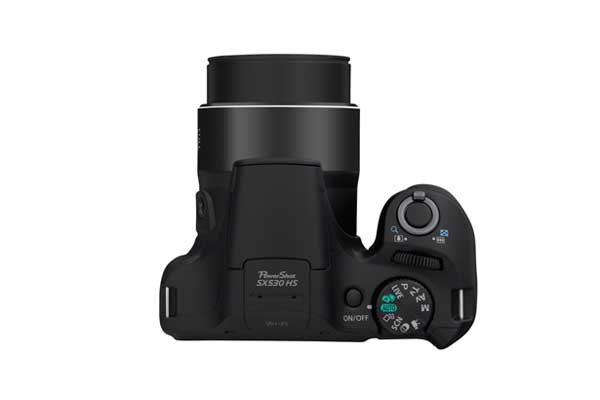
On the top right of the SX530 is its Mode dial, which lets you select from Auto, Scene, Aperture Priority, Shutter Priority, Program, Manual and even a Fish-Eye mode. In front of the Mode dial is a wheel that lets you control settings such as aperture and shutter speed. On top of the grip sits the zoom toggle and the shutter button.
MORE: Best Mirrorless Cameras
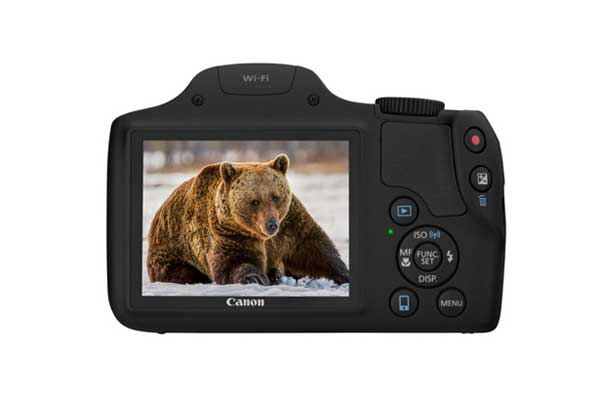
The 3-inch 480 x 320 LCD doesn't tilt or rotate and is not a touch screen. At its default brightness setting, the LCD was hard to see in bright sunlight, but once I bumped that up to the maximum level, it was bright enough.
Wireless Connections: Simple setup, limited functions
Thanks to built-in Wi-Fi and NFC capabilities, it's easy to share pictures via the SX530 HS. After downloading the Canon Camera Connect app (for iOS and Android), I quickly connected to the camera's Wi-Fi signal on my Huawei phone running Android Lollipop. Once the two were linked, it was a breeze to download pictures from the camera and remotely control it through the app. I would have preferred if the app had let me adjust settings such as ISO, shutter speed and aperture remotely, but it only let me toggle flash, zoom and set the timer.

To connect to a different device — in this case, my iPhone 5s — I had to go into the camera's menu and tell the SX530 to "forget" the Huawei first, which was slightly annoying. If two or more people share this camera, they will have to go through this process with each handoff if they intend to use the wireless capability.
With its NFC compatibility, the SX530 also works with Canon's Connect Station. You can simply place the camera on the station, touching the two devices' NFC tags to trigger a connection, and then easily upload your files to the Connect Station and share them on your TV or over Wi-Fi to friends and family.
Battery Life: Good enough for a day
The PowerShot SX530 HS' 1,060-mAh lithium-ion battery is rated for 210 shots (based on the CIPA measurement standards) and 290 shots on the power-saving Eco mode, which shuts the LCD screen off after 10 seconds of inactivity. During my testing on regular mode, the SX530 lasted through 223 pictures, about 3 minutes of video and about 30 minutes of wireless control and transfer before giving out. That's good enough for a full day of shooting with medium use.
Bottom Line
If you're buying the Canon PowerShot SX530 HS, you're in it for the powerful 50x optical zoom. Sure, the SX530 HS is more versatile than a smartphone, giving you more manual and creative controls, better low-light performance than most phones and an all-day battery, but most shoppers will not drop $300 just for that. The SX530, while lightweight, is also somewhat bulky and won't fit in your pocket, unlike the $250 Panasonic Lumix DMC-ZS45, which offers a 20x optical zoom.
Journalists, sports fans, proud parents and nature watchers will, however, appreciate the long zoom that lets them get close to finicky birds or a speaker on stage without scaring them off.
Looking to save some money on your next Canon camera? Check out our Canon voucher codes for the latest deals.
Key Specs
Model name: Canon PowerShot SX530 HS
Megapixels: 16
Type: Point-and-shoot
Price: $300
Shots per second: 10 fps at 16 MP
Sensor type: 1/2.3-inch CMOS
Lens: 24-1200mm, f/3.4 (W) - 6.5 (T)
Autofocus: Face detect, TTL Autofocus, Manual focus
Shutter-speed range: 1/2000 to 15 seconds
ISO range: 100-3200
Main video resolutions/frame rates: 1920 x 1080, 1280 x 720, 640 x 480; 30 fps only
Video file format: MP4
Built-in flash: Yes
Hot shoe: No
Card slot(s): 1 SD/SDHC/SDXC
Ports: miniHDMI, USB multi (AV), AV output
Shots per charge (CIPA standard measure): 210
Wireless: Wi-Fi, NFC
Image stabilization: Yes
Dimensions and weight: 4.72 x 3.22 x 3.62 inches; 15.6 ounces
When staff writer Cherlynn Low isn't writing about wearables, cameras and smartphones, she's devouring old episodes of Torchwood or The X-Files, or taking selfies. Follow her @cherlynnlow. Follow Tom's Guide at @tomsguide and on Facebook.
Cherlynn is Deputy Editor, Reviews at Engadget and also leads the site's Google reporting. She graduated with a Master’s in Journalism from Columbia University before joining Tom's Guide and its sister site LaptopMag as a staff writer, where she covered wearables, cameras, laptops, computers and smartphones, among many other subjects.
